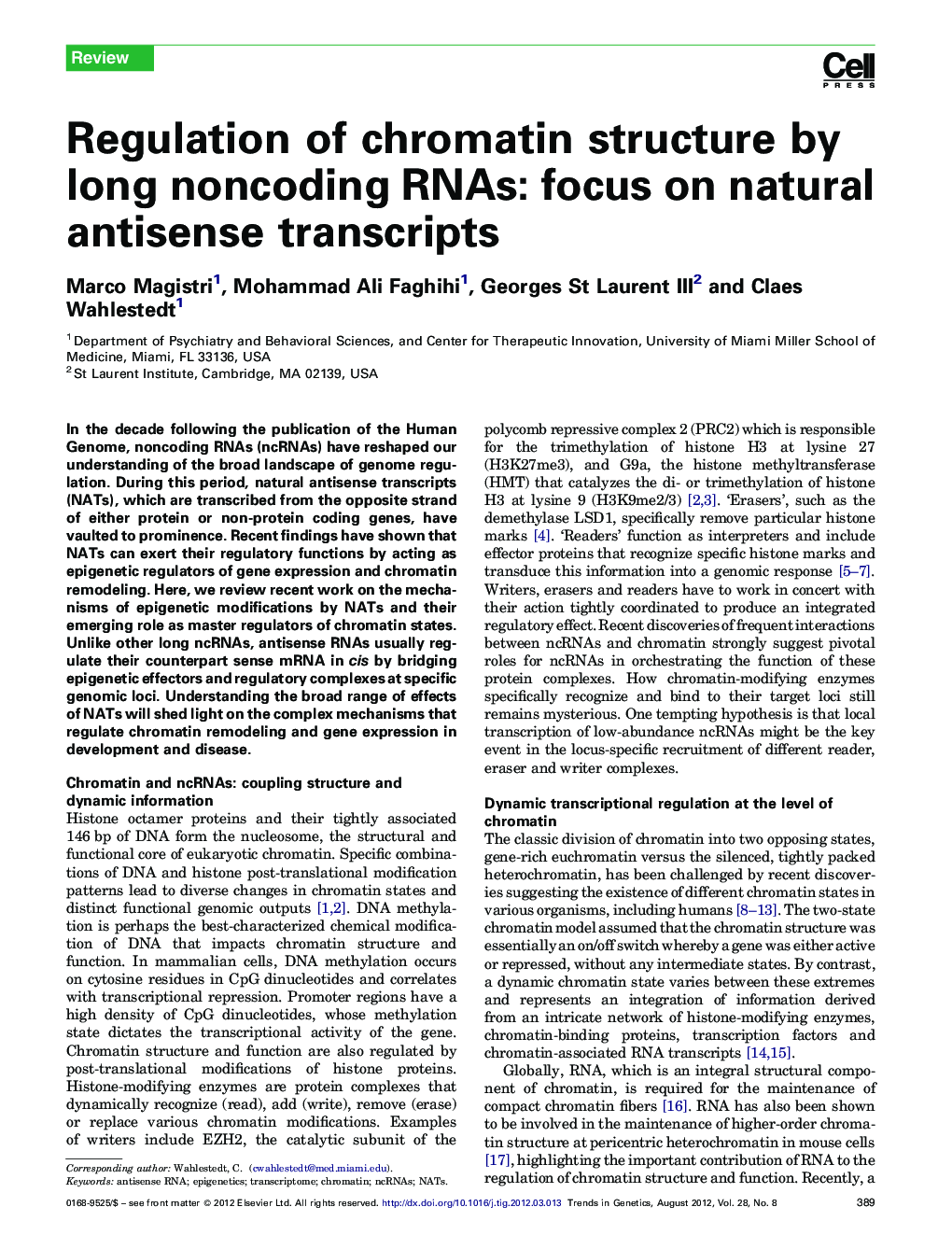| Article ID | Journal | Published Year | Pages | File Type |
|---|---|---|---|---|
| 2824762 | Trends in Genetics | 2012 | 8 Pages |
In the decade following the publication of the Human Genome, noncoding RNAs (ncRNAs) have reshaped our understanding of the broad landscape of genome regulation. During this period, natural antisense transcripts (NATs), which are transcribed from the opposite strand of either protein or non-protein coding genes, have vaulted to prominence. Recent findings have shown that NATs can exert their regulatory functions by acting as epigenetic regulators of gene expression and chromatin remodeling. Here, we review recent work on the mechanisms of epigenetic modifications by NATs and their emerging role as master regulators of chromatin states. Unlike other long ncRNAs, antisense RNAs usually regulate their counterpart sense mRNA in cis by bridging epigenetic effectors and regulatory complexes at specific genomic loci. Understanding the broad range of effects of NATs will shed light on the complex mechanisms that regulate chromatin remodeling and gene expression in development and disease.
